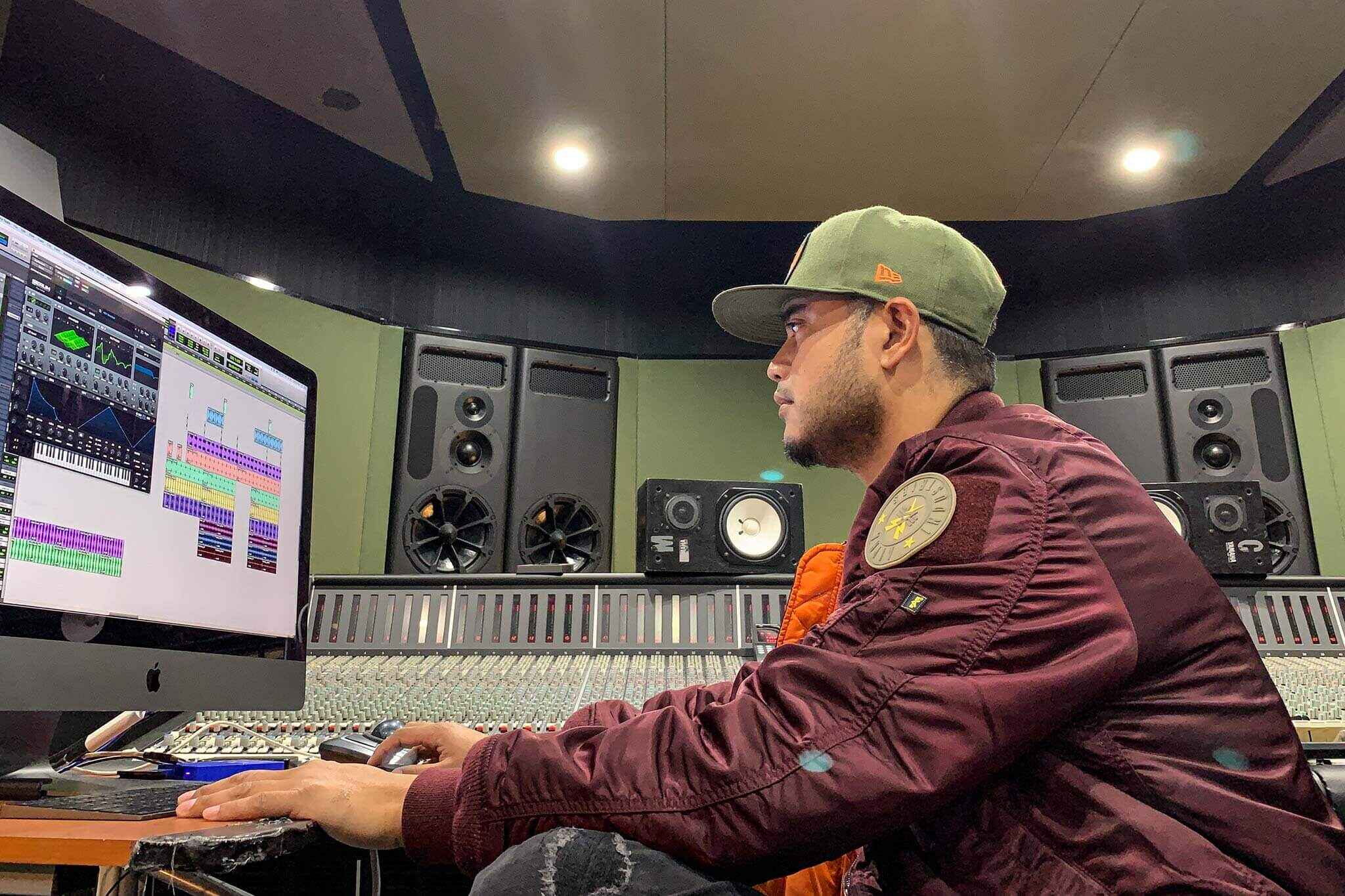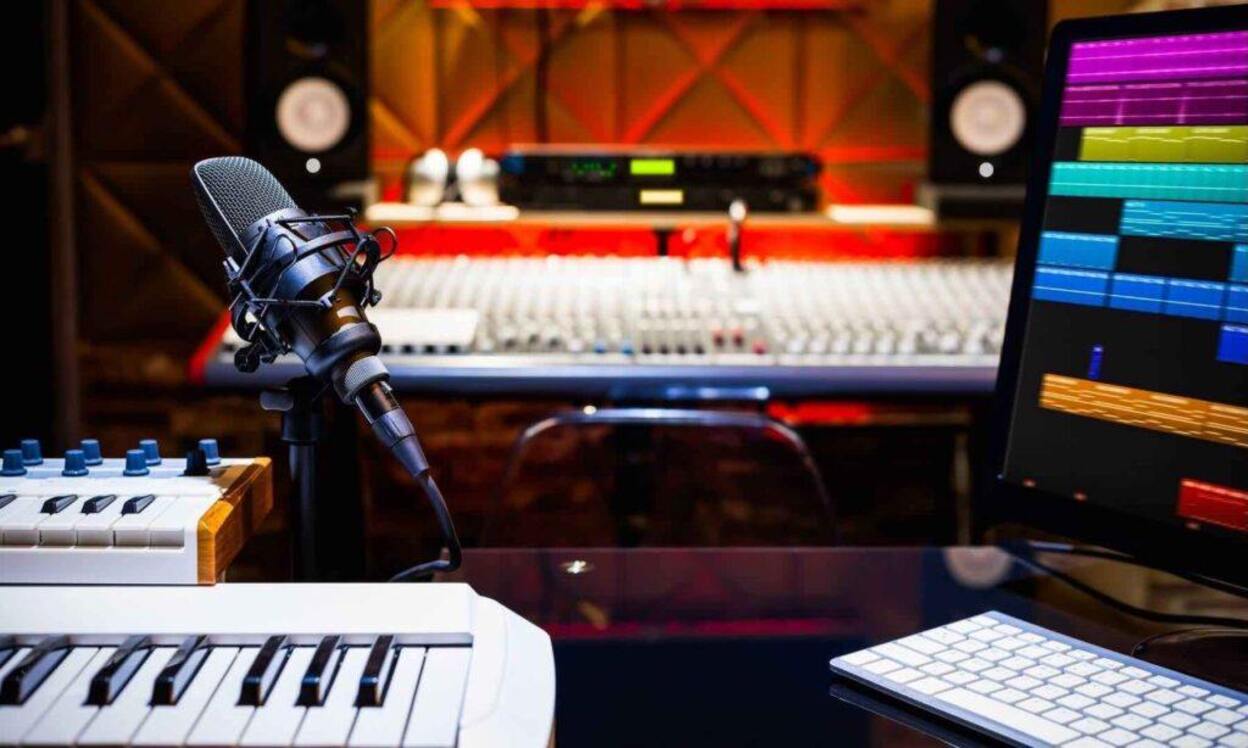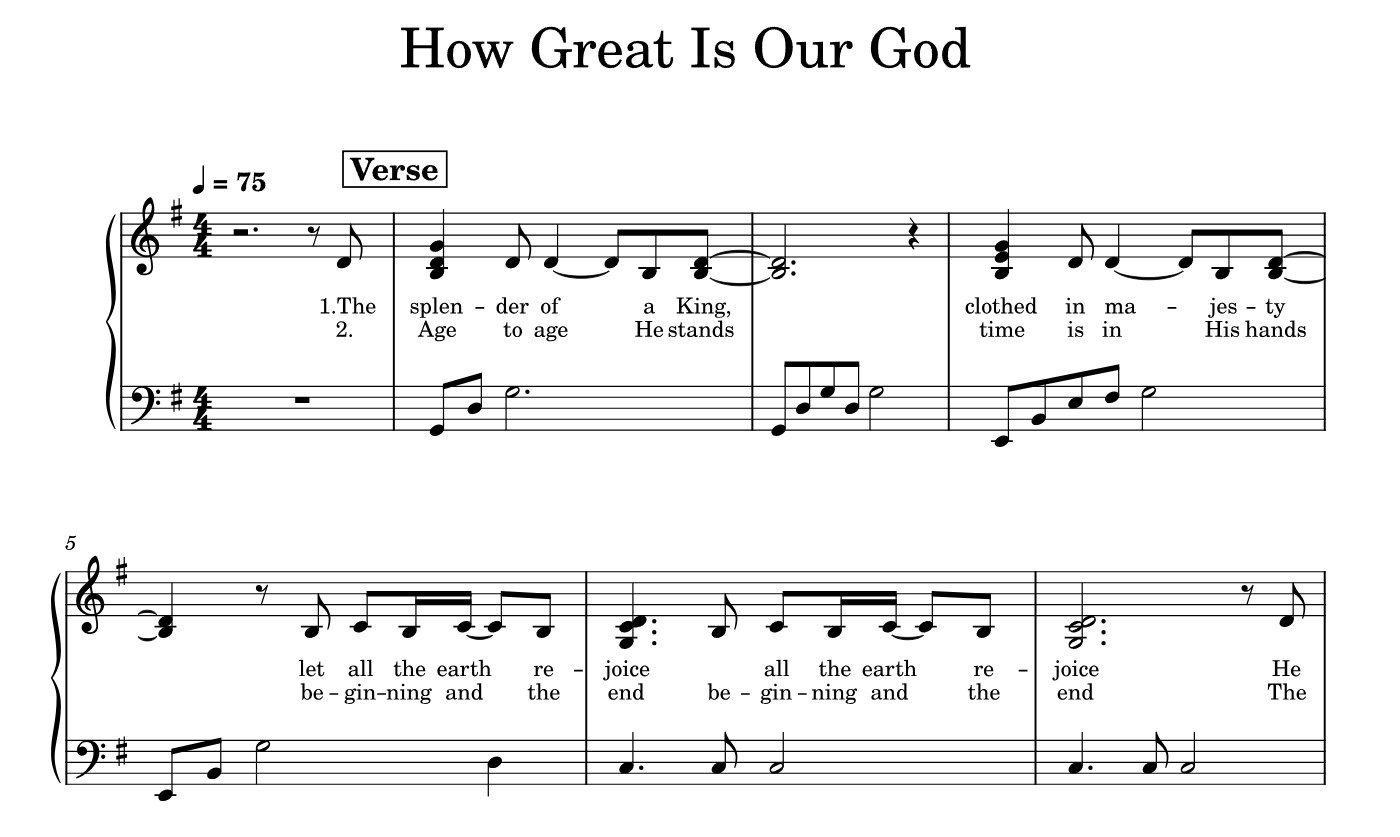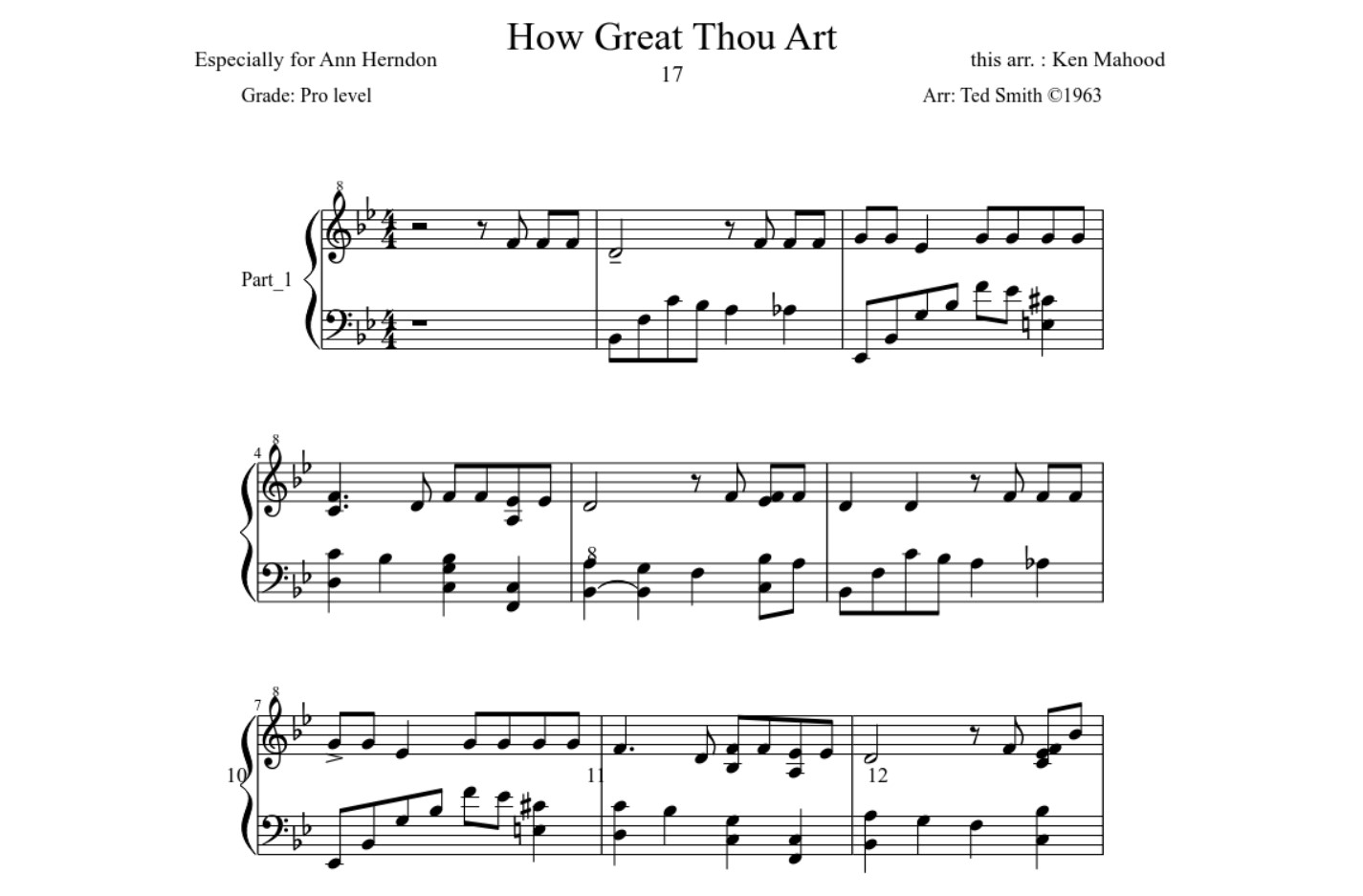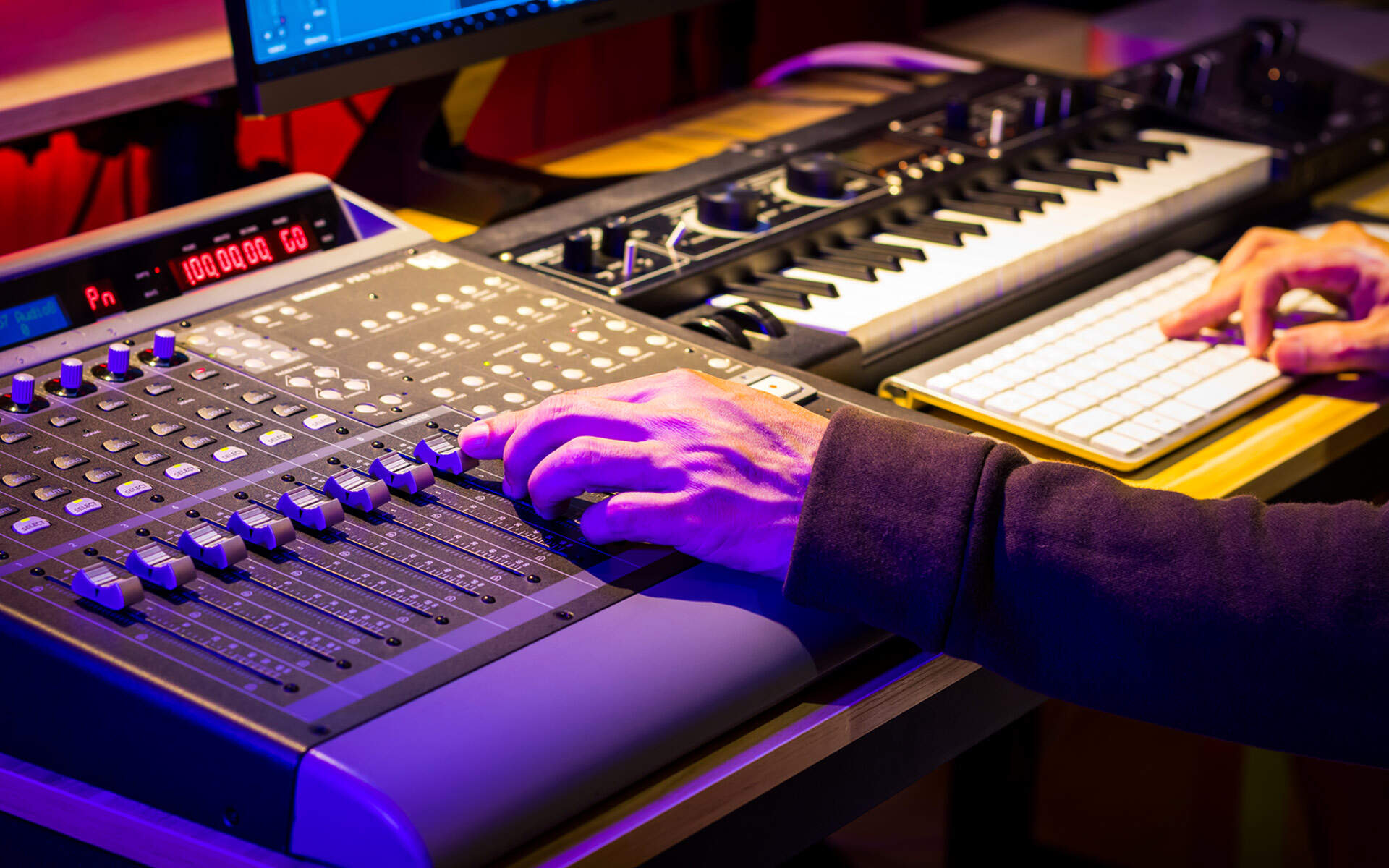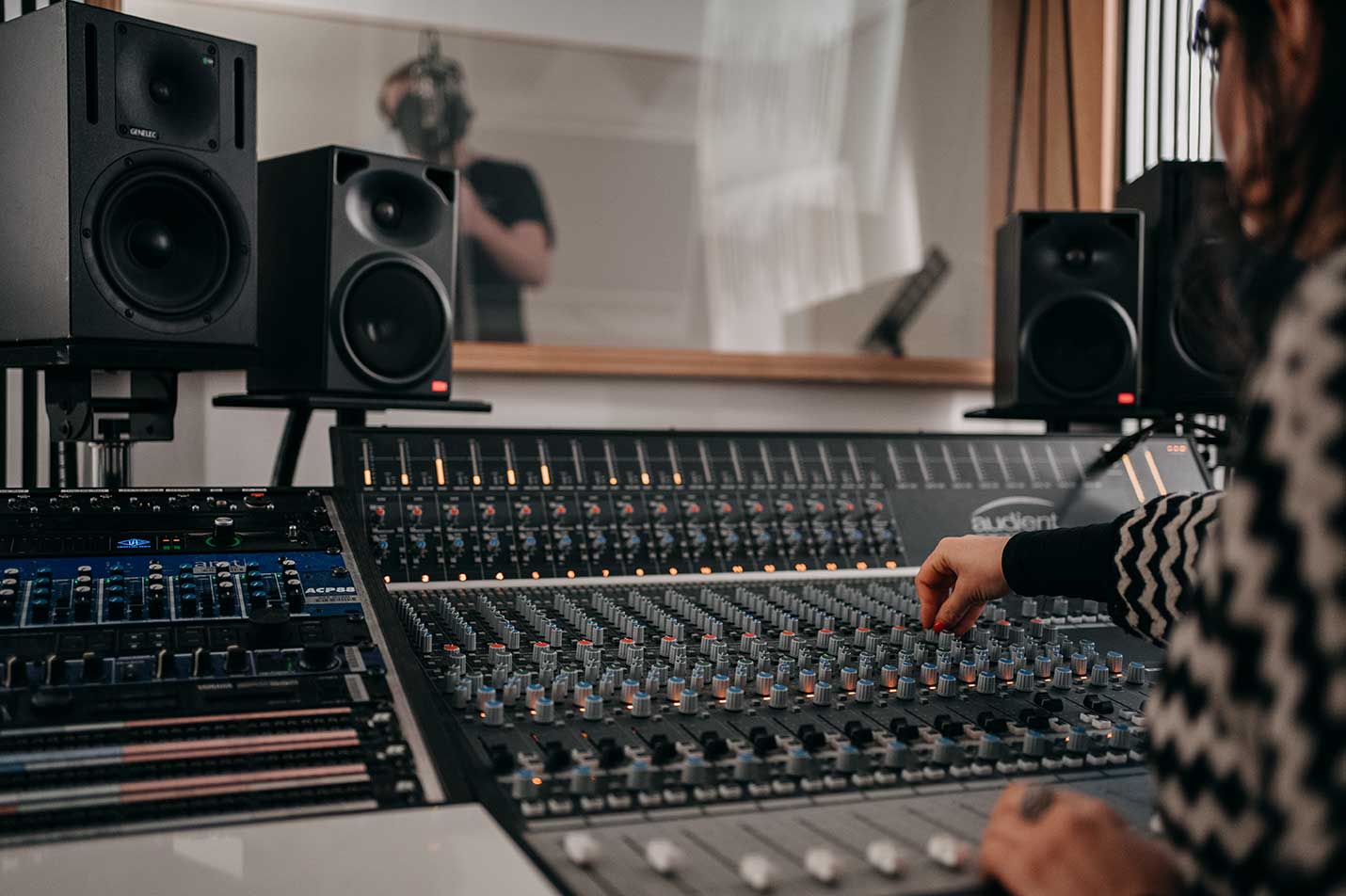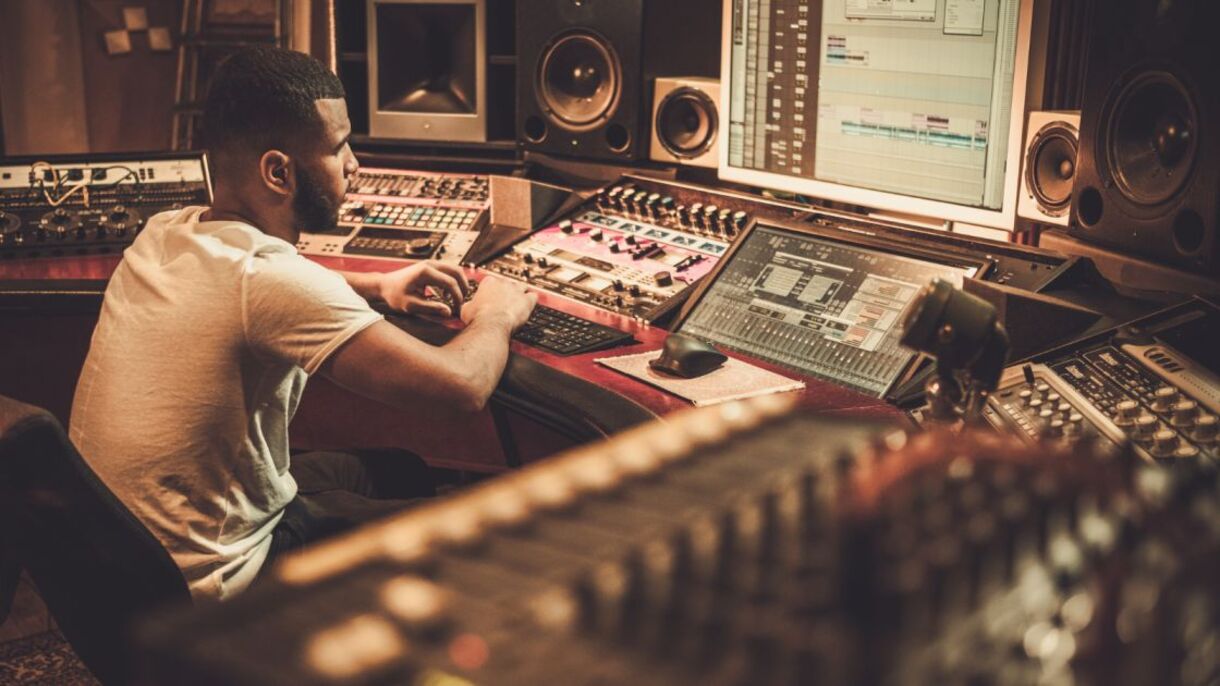Home>Production & Technology>Producer>How To Be A Great Music Producer
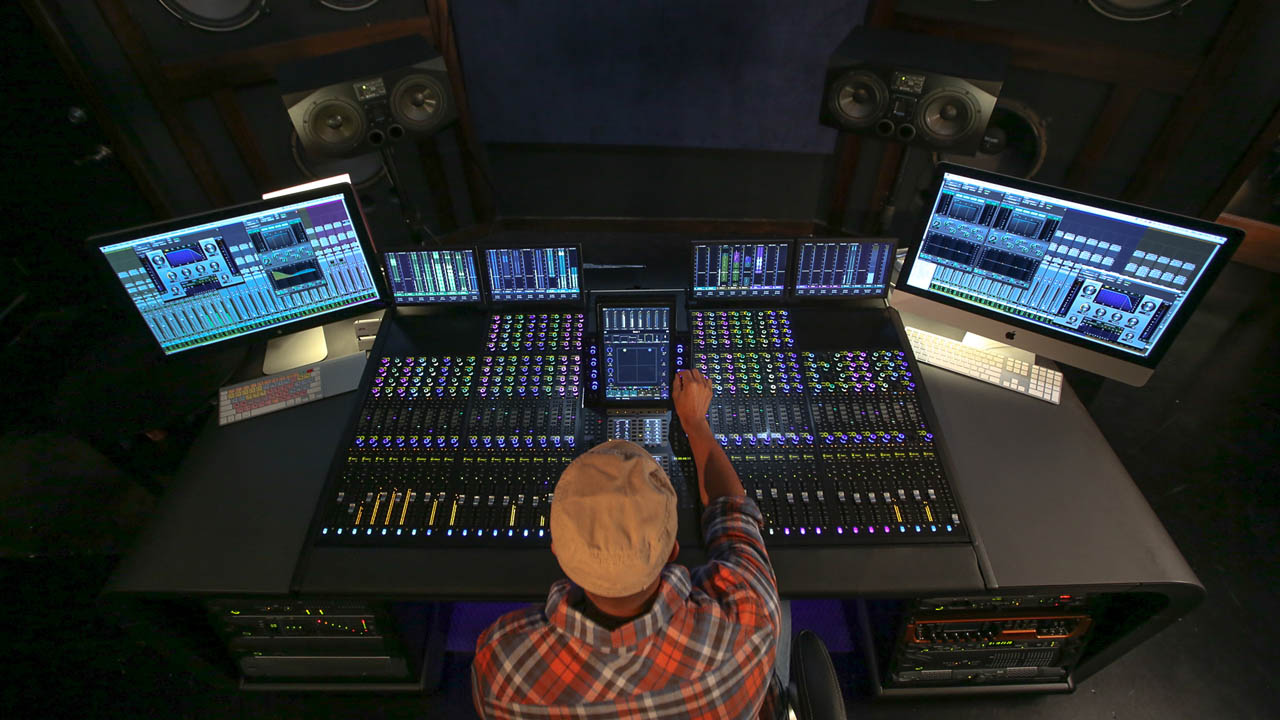

Producer
How To Be A Great Music Producer
Published: March 5, 2024
Learn the essential skills and techniques to become a successful music producer. Discover the secrets to producing top-quality music in this comprehensive guide. Become a great music producer today!
(Many of the links in this article redirect to a specific reviewed product. Your purchase of these products through affiliate links helps to generate commission for AudioLover.com, at no extra cost. Learn more)
Table of Contents
Introduction
Embarking on the journey to become a great music producer is an exhilarating endeavor that requires a unique combination of technical skills, creativity, and a deep understanding of the art of music production. As a music producer, you are the architect of sound, responsible for shaping and bringing to life the musical vision of artists. This role demands not only technical proficiency but also a keen ear for composition, arrangement, and sonic aesthetics.
To excel in the realm of music production, one must possess a multifaceted skill set that encompasses both the technical and artistic aspects of the craft. This includes a comprehensive understanding of music theory, proficiency in utilizing cutting-edge music production software, and the ability to cultivate a distinct and recognizable style. Moreover, successful music producers are adept at collaborating with artists, building their brand, and staying creatively inspired amidst the ever-evolving landscape of the music industry.
In this comprehensive guide, we will delve into the essential elements that constitute the journey to becoming a great music producer. From unraveling the intricacies of music theory to mastering music production software, from developing your own signature style to collaborating with artists, we will explore the multifaceted facets of this dynamic and rewarding profession. Furthermore, we will discuss the significance of networking and brand-building in establishing a successful career as a music producer, as well as strategies for maintaining creativity and inspiration in the face of challenges and evolving trends.
As we navigate through the various dimensions of music production, it is essential to remember that the path to becoming a great music producer is a continuous and ever-evolving process. By embracing the fusion of technical expertise and artistic ingenuity, you can embark on a transformative journey that not only elevates your skills but also leaves an indelible imprint on the world of music. Let's embark on this enriching expedition and unravel the secrets to becoming a great music producer.
Understanding Music Theory
Understanding music theory is a foundational pillar for anyone aspiring to become a great music producer. It serves as the compass that guides producers through the intricate landscape of musical composition, arrangement, and production. Music theory encompasses a broad spectrum of concepts, including harmony, melody, rhythm, and form, all of which are essential elements in crafting compelling and resonant musical pieces.
At the core of music theory lies the study of harmony, which involves understanding the relationship between different musical notes and how they interact to create rich and emotive soundscapes. This knowledge enables music producers to construct harmonically rich compositions that evoke specific moods and emotions. Moreover, a deep comprehension of melody empowers producers to craft memorable and captivating musical motifs that serve as the focal point of a song.
Rhythm, another fundamental component of music theory, dictates the temporal aspect of music, encompassing elements such as tempo, meter, and rhythmic patterns. Mastery of rhythmic principles allows producers to infuse their compositions with dynamic and engaging rhythmic structures, adding depth and vitality to their musical creations.
Furthermore, an understanding of musical form equips producers with the ability to structure their compositions in a coherent and compelling manner. This involves grasping the principles of musical arrangement, including the organization of sections such as verses, choruses, bridges, and instrumental breaks, to create a cohesive and impactful musical narrative.
In addition to these core concepts, music theory encompasses a myriad of other elements, such as scales, chord progressions, and modulation, all of which contribute to the holistic understanding of music production. By delving into the intricacies of music theory, aspiring music producers lay the groundwork for a profound and nuanced approach to crafting music that resonates with audiences on a profound level.
In essence, a thorough understanding of music theory empowers music producers to navigate the expansive realm of musical creation with finesse and creativity. It serves as the bedrock upon which producers can build their artistic vision, enabling them to craft compositions that are not only technically sound but also emotionally stirring and evocative. Aspiring music producers who embark on the journey of unraveling the depths of music theory pave the way for a transformative and enriching exploration of the art of music production.
Mastering Music Production Software
Mastering music production software is a pivotal aspect of the journey to becoming a proficient music producer. In today's digital age, music production software serves as the primary tool for translating creative ideas into polished and professional musical compositions. Whether it's industry-standard digital audio workstations (DAWs) like Ableton Live, Logic Pro, or FL Studio, or specialized software for sound design and synthesis, such as Native Instruments' Komplete and Spectrasonics Omnisphere, mastering these tools is essential for unleashing the full potential of one's musical creativity.
Proficiency in music production software empowers producers to harness a myriad of capabilities, including recording, editing, arranging, mixing, and mastering audio. These software platforms provide a versatile and dynamic environment for manipulating sound, enabling producers to sculpt and refine their musical creations with precision and finesse. Moreover, the integration of virtual instruments, synthesizers, and audio effects within these software packages expands the sonic palette available to producers, allowing for boundless experimentation and innovation.
In addition to technical proficiency, mastering music production software involves developing an intuitive understanding of workflow optimization and utilizing advanced features to streamline the production process. This includes mastering the art of MIDI sequencing, audio quantization, audio manipulation, and the intricate nuances of audio mixing and signal processing. Furthermore, a deep comprehension of software-based sound design and synthesis empowers producers to craft unique and captivating sonic textures that define their signature sound.
Moreover, staying abreast of the latest updates and advancements in music production software is crucial for remaining at the forefront of innovation. As software developers continually introduce new features and enhancements, mastering these updates ensures that producers can leverage the full potential of cutting-edge tools and techniques in their creative endeavors.
Ultimately, mastering music production software is an ongoing journey that requires dedication, practice, and a willingness to explore new horizons. By honing their skills within these digital environments, aspiring music producers can unleash their creative vision and elevate their musical productions to new heights of excellence. Through the mastery of music production software, producers unlock a world of boundless artistic possibilities, enabling them to shape the future of music with ingenuity and innovation.
Developing Your Own Style
Developing a distinctive and recognizable style is a defining aspect of the journey for any aspiring music producer. It is the artistic fingerprint that sets a producer apart, allowing them to carve out a unique niche in the vast landscape of music production. While technical proficiency and theoretical knowledge form the foundation of music production, it is the cultivation of a personal style that breathes life and individuality into one's musical creations.
At the heart of developing a personal style lies the amalgamation of influences, experiences, and creative impulses. Drawing inspiration from a diverse array of musical genres, artists, and cultural influences provides a rich tapestry from which a producer can weave their sonic identity. By immersing themselves in a wide spectrum of musical expressions, from classical compositions to contemporary electronic music, producers can distill a myriad of influences into a cohesive and distinctive artistic vision.
Moreover, experimentation and innovation play a pivotal role in the development of a unique style. Embracing unconventional techniques, exploring uncharted sonic territories, and pushing the boundaries of traditional norms empowers producers to craft a sound that is truly their own. This spirit of adventurous exploration fosters a sense of authenticity and originality, allowing producers to transcend the confines of convention and carve out new artistic frontiers.
Furthermore, the integration of personal experiences and emotions into musical compositions infuses a producer's style with depth and resonance. Whether drawing from moments of joy, introspection, or adversity, weaving personal narratives into music imbues it with a profound sense of authenticity and emotional connectivity. This emotional authenticity forms the cornerstone of a producer's style, enabling them to create music that resonates with audiences on a visceral and profound level.
In essence, developing a personal style as a music producer is an introspective and transformative process that evolves over time. It is a journey of self-discovery, artistic exploration, and creative expression that culminates in the crystallization of a distinct and resonant sonic identity. By embracing influences, fostering innovation, and infusing personal experiences into their musical creations, aspiring music producers can embark on a transformative odyssey that leads to the cultivation of a style that is uniquely their own.
Working with Artists and Collaborating
Collaborating with artists is an integral aspect of the music production process, marking the convergence of creative visions and the synergy of artistic talents. As a music producer, the ability to forge meaningful and productive collaborations with artists is paramount in bringing musical compositions to fruition. This collaborative dynamic not only fosters a harmonious working relationship but also enriches the creative landscape, resulting in music that transcends individual contributions.
Effective collaboration begins with establishing open lines of communication and cultivating a deep understanding of the artist's creative vision. By actively listening to the artist's ideas, inspirations, and aspirations, producers can align their own creative expertise with the artist's vision, ensuring a cohesive and symbiotic partnership. This collaborative synergy lays the groundwork for a shared artistic journey, where mutual respect and creative exchange form the bedrock of the collaborative process.
Furthermore, fostering a collaborative environment built on trust and transparency is pivotal in nurturing a productive working relationship with artists. Creating a space where artists feel empowered to express their artistic inclinations and experiment with creative concepts engenders an atmosphere of creative freedom and exploration. This collaborative ethos encourages artists to push the boundaries of their artistic expression, resulting in music that is imbued with authenticity and emotional resonance.
Moreover, the collaborative process extends beyond the confines of the studio, encompassing various facets such as pre-production meetings, brainstorming sessions, and post-production refinements. Engaging in open dialogue and collaborative decision-making at each stage of the production journey ensures that the artist's creative input is seamlessly woven into the fabric of the musical composition. This inclusive approach fosters a sense of ownership and investment in the collaborative endeavor, leading to music that reflects the collective artistic synergy of the producer and the artist.
In essence, working with artists and fostering collaborative partnerships is a transformative and enriching aspect of the music production process. By embracing the spirit of collaboration, music producers can harness the diverse talents and creative energies of artists, resulting in musical compositions that resonate with depth, authenticity, and creative ingenuity. This collaborative ethos not only elevates the quality of musical productions but also forges enduring artistic connections that transcend the boundaries of individual creativity.
Networking and Building Your Brand
Networking and building your brand are indispensable components in establishing a successful career as a music producer. In an industry driven by connections and visibility, the ability to forge meaningful professional relationships and cultivate a distinct brand identity plays a pivotal role in propelling one's career forward. Networking serves as the conduit for engaging with industry professionals, fellow musicians, and potential collaborators, while brand building encompasses the cultivation of a unique and compelling identity that resonates with audiences and industry stakeholders alike.
Effective networking begins with immersing oneself in the music community, both locally and globally. Attending industry events, music festivals, and networking mixers provides valuable opportunities to connect with fellow producers, artists, record label representatives, and other key figures within the music ecosystem. These interactions not only foster a sense of camaraderie but also lay the groundwork for potential collaborations, mentorship opportunities, and industry insights that can catalyze career growth.
Moreover, leveraging digital platforms and social media channels is instrumental in expanding one's professional network. Engaging with industry groups, participating in online forums, and showcasing one's work on platforms such as SoundCloud, Bandcamp, or YouTube can amplify visibility and attract the attention of industry professionals and potential collaborators. Furthermore, maintaining an active and professional presence on platforms like LinkedIn and industry-specific forums cultivates a digital footprint that enhances credibility and facilitates meaningful connections within the music industry.
Simultaneously, building a compelling brand identity is essential for distinguishing oneself in a competitive landscape. This involves crafting a cohesive and authentic narrative that encapsulates one's artistic ethos, musical style, and professional values. From the visual aesthetics of branding materials to the sonic identity of one's musical productions, every facet should harmoniously align to convey a compelling and memorable brand image.
Strategic brand building also encompasses the development of a professional portfolio, including a robust online presence through a dedicated website or professional profiles on industry platforms. Curating a portfolio that showcases a diverse range of musical productions, collaborations, and accolades reinforces one's expertise and artistic versatility, thereby enhancing the appeal to potential clients, collaborators, and industry professionals.
In essence, networking and brand building are symbiotic endeavors that intertwine to shape a music producer's professional trajectory. By cultivating a robust professional network and crafting a compelling brand identity, producers can position themselves for success, opening doors to collaborative opportunities, industry recognition, and sustained career advancement. Embracing the power of networking and brand building empowers music producers to navigate the intricacies of the music industry with confidence, resilience, and an unwavering commitment to artistic excellence.
Staying Creative and Inspired
Staying creative and inspired is an ongoing journey that lies at the heart of the music production process. As a music producer, maintaining a continuous wellspring of creativity and inspiration is essential for crafting compelling and innovative musical compositions that resonate with audiences on a profound level. This endeavor transcends mere technical proficiency, delving into the realms of artistic exploration, emotional connectivity, and a deep-seated passion for the craft.
One of the fundamental strategies for staying creative and inspired as a music producer is to embrace a diverse range of influences and experiences. Immersing oneself in a rich tapestry of musical genres, cultural expressions, and artistic mediums fosters a broad and eclectic palette of inspiration. From classical symphonies to avant-garde electronic compositions, each genre and style offers a unique tapestry of sonic textures, emotional nuances, and compositional techniques that can ignite fresh sparks of creativity. Moreover, exploring other art forms such as visual arts, literature, and cinema can infuse producers with a multidimensional wellspring of inspiration, enriching their creative landscape and broadening their artistic horizons.
Furthermore, nurturing a proactive and inquisitive mindset is pivotal in sustaining creativity and inspiration. This involves seeking out new experiences, engaging in thought-provoking conversations, and venturing into uncharted creative territories. Embracing an attitude of curiosity and openness to unconventional ideas fosters a spirit of creative exploration, enabling producers to unearth novel sonic landscapes and innovative production techniques. Moreover, actively seeking out collaboration with diverse artists and musicians can spark new creative synergies, infusing producers with fresh perspectives and imaginative stimuli that invigorate their creative process.
In addition to external influences, cultivating a conducive creative environment is essential for nurturing sustained inspiration. This encompasses creating a dedicated space for music production that is conducive to creative flow, free from distractions and imbued with an ambiance that fuels artistic expression. Moreover, integrating rituals and practices such as meditation, mindfulness, or physical exercise can invigorate the mind and spirit, fostering mental clarity and emotional equilibrium that are conducive to sustained creativity and inspiration.
Ultimately, staying creative and inspired as a music producer is a deeply personal and introspective journey that unfolds through a tapestry of experiences, influences, and creative practices. By embracing a diverse range of influences, fostering a proactive mindset, and cultivating a conducive creative environment, producers can embark on an enriching odyssey that sustains their artistic fervor and fuels their creative vision. This unwavering commitment to creativity and inspiration not only enriches the artistic journey of music producers but also yields musical compositions that resonate with depth, authenticity, and boundless creative ingenuity.
Conclusion
In conclusion, the journey to becoming a great music producer is a multifaceted odyssey that encompasses technical prowess, artistic innovation, collaborative spirit, and a relentless pursuit of creativity and inspiration. From unraveling the intricacies of music theory to mastering cutting-edge music production software, from cultivating a distinctive artistic style to forging meaningful collaborations with artists, the path of a music producer is one that demands unwavering dedication, resilience, and an insatiable passion for the craft.
Aspiring music producers embarking on this transformative journey are called to embrace the fusion of technical expertise and artistic ingenuity, weaving a tapestry of influences, experiences, and creative impulses into their sonic identity. The cultivation of a unique and recognizable style, underpinned by a deep understanding of music theory, serves as the cornerstone of their artistic vision, enabling them to craft compositions that resonate with authenticity and emotional depth.
Moreover, the collaborative ethos of working with artists and building a robust professional network empowers music producers to transcend the confines of individual creativity, fostering an environment of shared artistic synergy and mutual creative exchange. By immersing themselves in a diverse and vibrant music community, producers can harness the collective talents and energies of fellow musicians, industry professionals, and collaborators, thereby propelling their creative trajectory forward.
Furthermore, the significance of networking and brand building cannot be overstated in establishing a successful career as a music producer. By cultivating meaningful professional relationships and crafting a compelling brand identity, producers can position themselves for sustained career growth, industry recognition, and collaborative opportunities that amplify their artistic impact and reach.
Ultimately, the journey to becoming a great music producer is one that unfolds through a continuous exploration of creative frontiers, a steadfast commitment to artistic excellence, and an unwavering dedication to staying creatively inspired. By embracing the transformative power of music production, aspiring producers can embark on a journey that not only elevates their skills but also leaves an indelible imprint on the world of music, shaping the future of sonic innovation with ingenuity, passion, and boundless creative vision.


